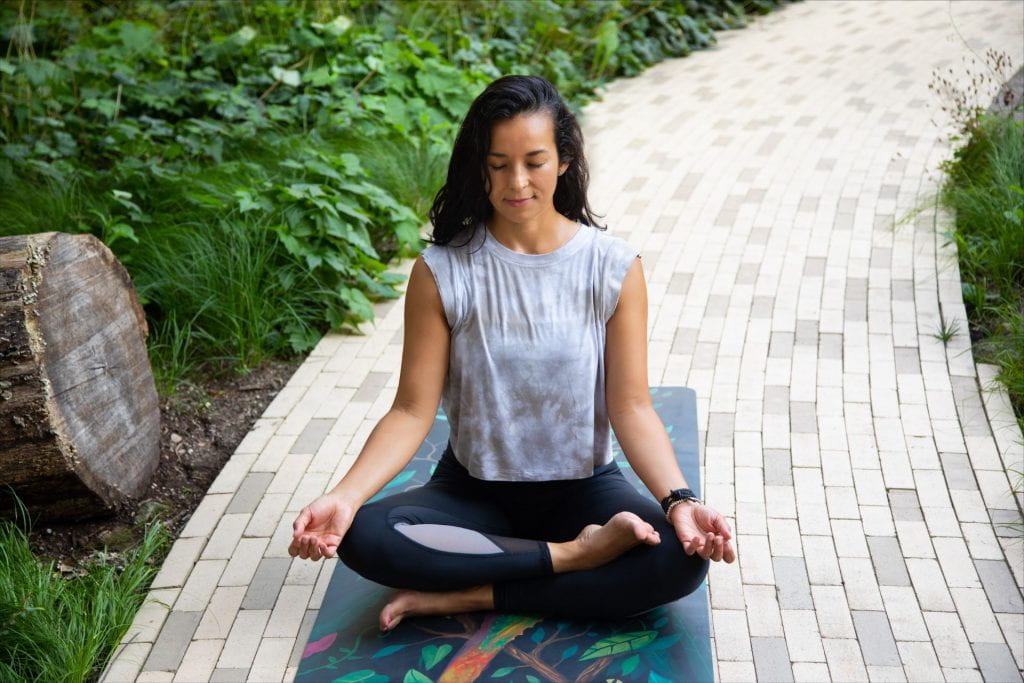It wasn’t the toasted ravioli that drew Diana Parra Perez to St. Louis.
Parra Perez began her journey in public health and to the PRC in Bogota, Colombia, where her interest in physical activity led to becoming a physical therapist who aimed to work with athletes. As she was introduced to the endeavors of public health practitioners, she saw the impact that healthy behavior could have on a broader segment of the population.
“I saw that something very small, like being active 30 minutes a day, can have a big impact, especially on people who have a chronic disease, like diabetes,” she said. “I thought: ‘Wow, I really want to know how to do this.’” A six-month fellowship at the CDC led her to a conference in San Diego where she met PRC founder Ross Brownson, who eventually invited her to earn a master’s degree in public health at Saint Louis University. She arrived there in 2006, got her degree and joined the PRC in its move to Washington University, where she’s been ever since, earning her PhD in 2013 as a member of the first cohort of doctoral public-health students at the Brown School.
In 2016, she started getting interested in yoga and mindfulness, but could never find a yoga instructor who conducted sessions in Spanish. So she became a yoga and meditation instructor at non profits that worked with immigrants, work that led to a her research working with mindfulness programs for Latinas in St. Louis.
After a stint as an assistant professor in the physical therapy program at the School of Medicine, in 2020 she became a Research Assistant Professor at the Brown School with a focus on Food Justice and Nutrition Sovereignty. She received a grant from the CDC and NASCD for building inclusive and resilient communities through physical activity, nutrition and social connectedness. It was a subject that had gained immediacy with the advent of the COVID pandemic.
“We are looking at ways to prevent people at high risk from suffering the brunt of social isolation,” she said, with tools like computer classes and libraries to supply books and dvds to homebound older adults. “COVID showed us the importance of social connectedness. If local organizations develop plans for resiliency for the next pandemic, we’ll be better prepared.”
Making the original adjustment to St. Louis from Bogota was rough at first, with the major challenges being the food (“I mostly cook at home”) and transportation without a car in the city’s famously mercurial weather. But as time went on, she developed an affection for the area, its parks and its community. “St. Louis has a lot of jewels, and what I like the most is it has potential,” she said. “There are so many people here doing great work for justice.”
Like many PRC-ers, Parra Perez has been working from home during the pandemic. She misses the company of the center’s faculty, staff and students. “I love being with like-minded people who get what I’m doing and support it, who care about public health,” she said, and looks forward to a return to in-person work.
“I can’t wait to be back.”
